



The new 2024/25 trekking season starts in September and Hafid Benyachou and his team have worked out some interesting new routes. They are looking forward to your booking and are ready to accompany you! Give us a call or write to us!
Fellow hikers wanted
Co-operations: Akabar – Sahara Treks will co-operate with the following companies in the future: www.beprep.ch and www.yogafine.at
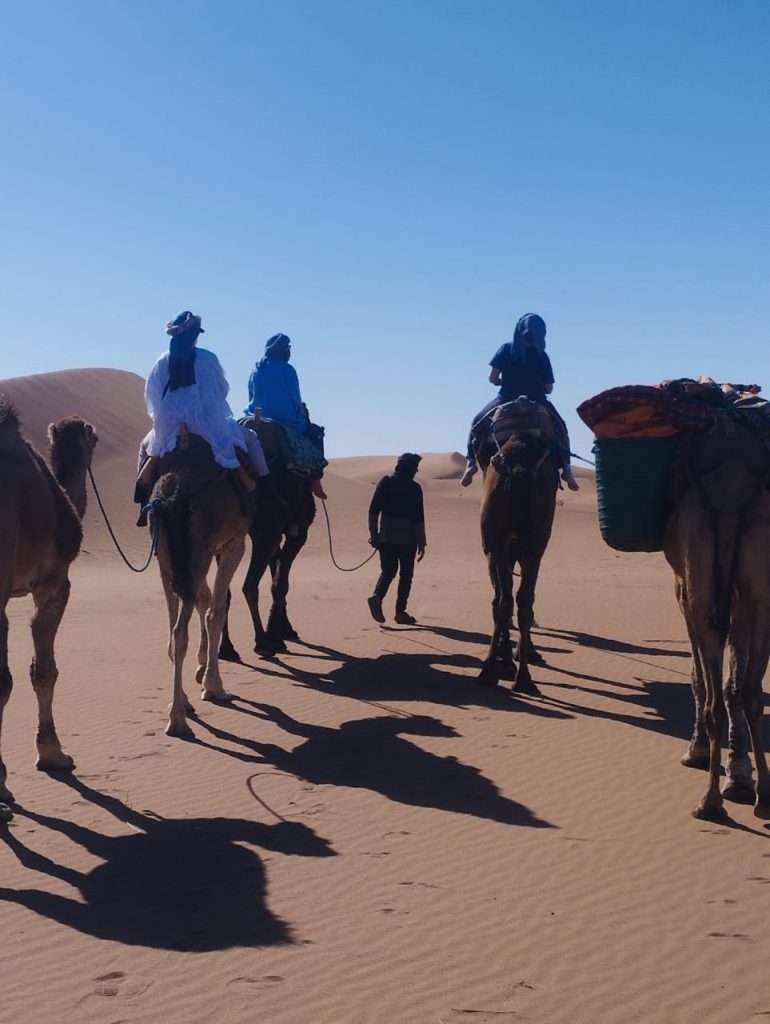
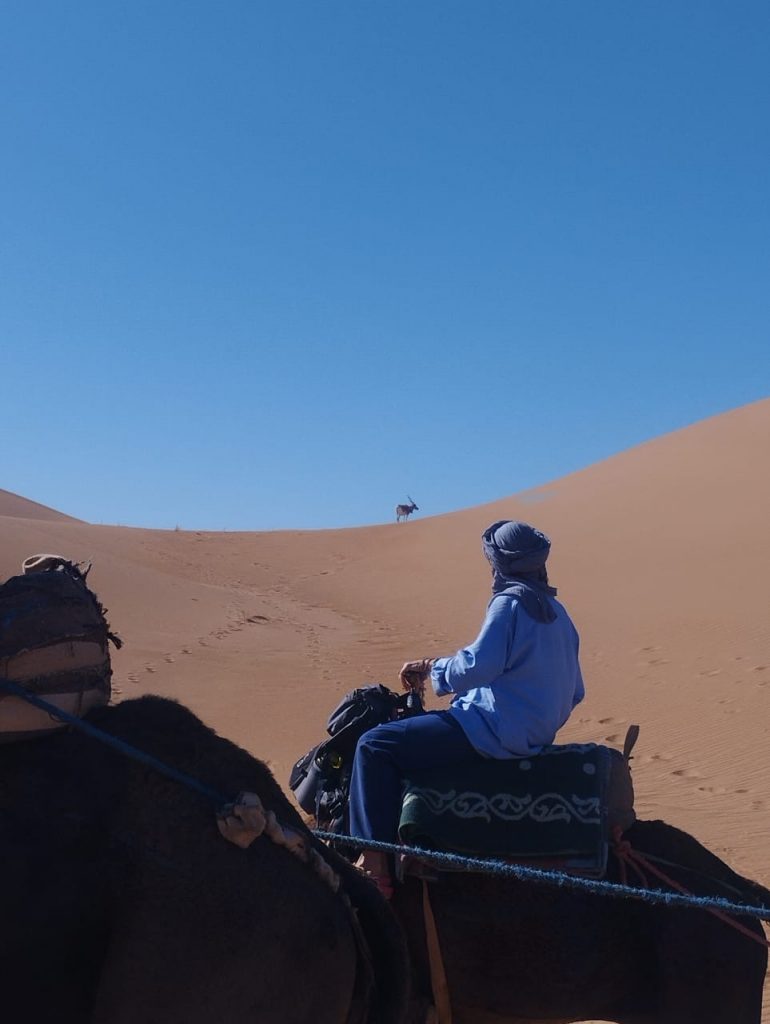
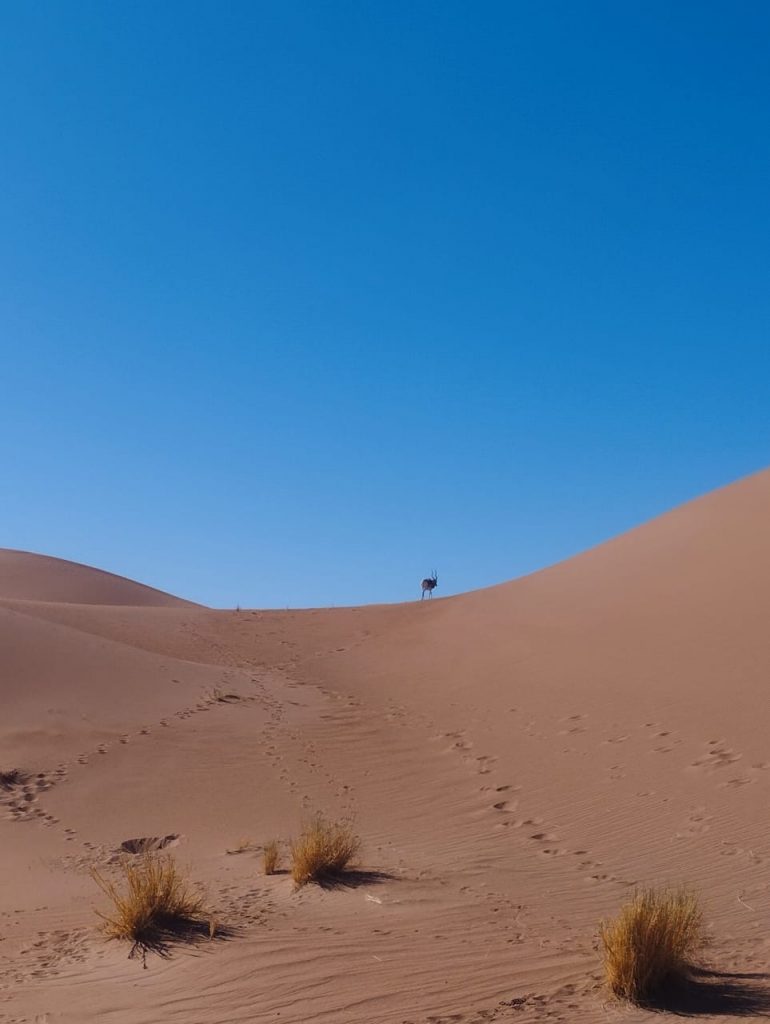
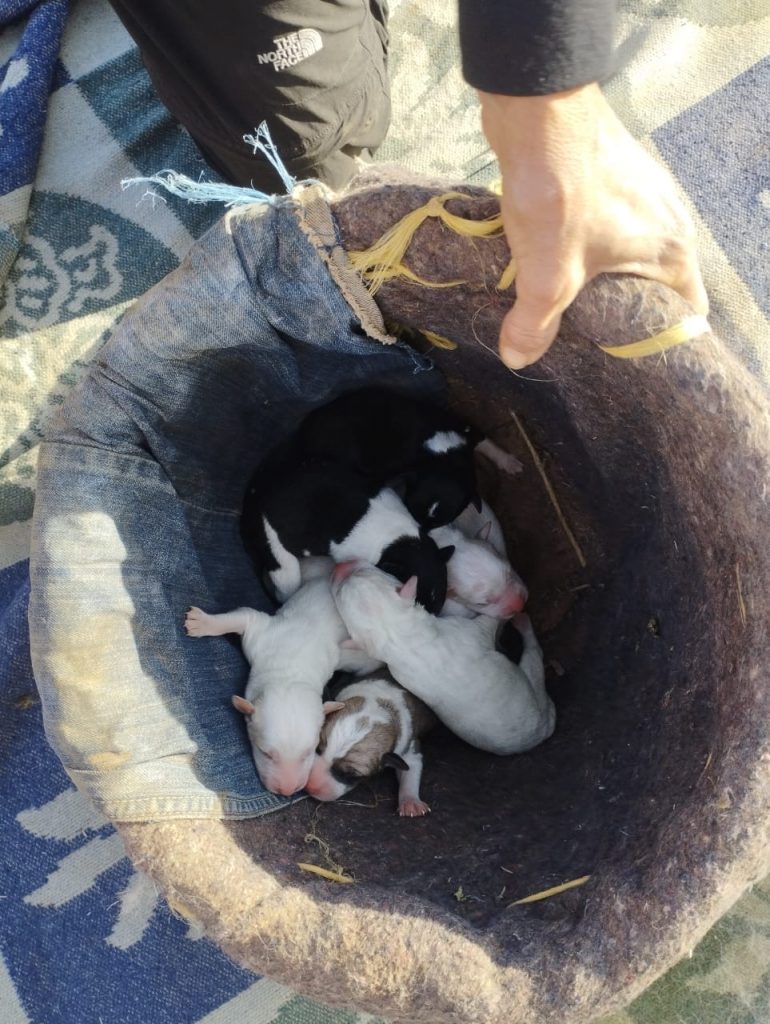
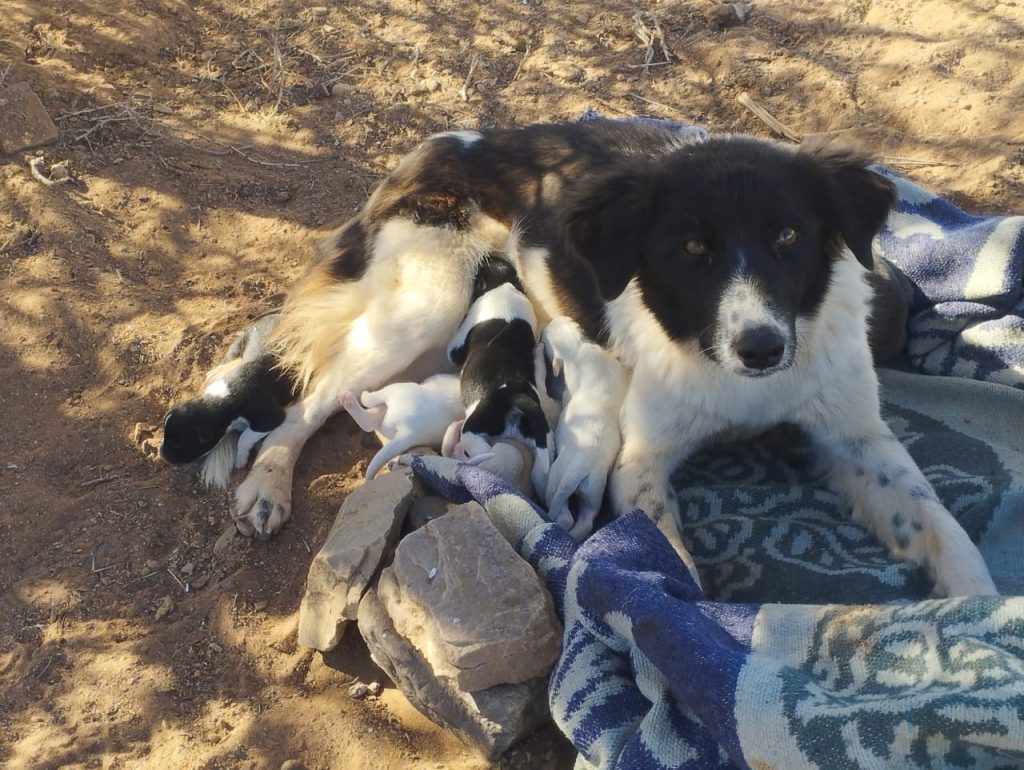
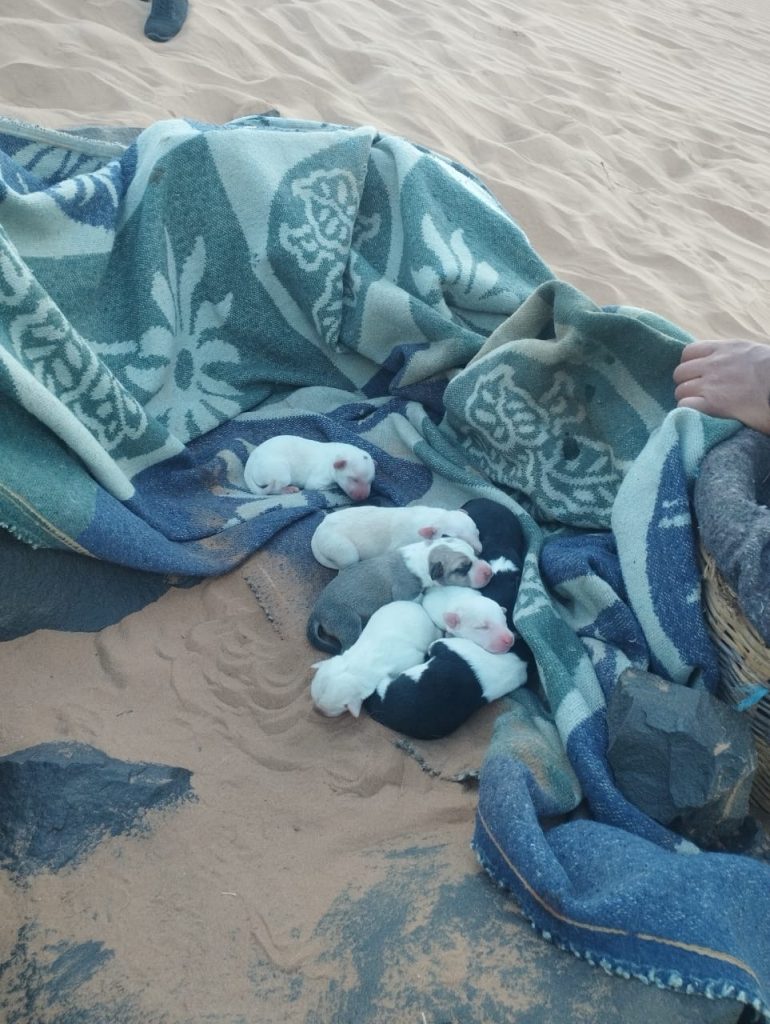
A group of desert hikers had a particularly interesting trekking experience: a rare sighting of an antelope and for days they were accompanied by a pregnant female dog, which gave birth to 7 cubs on the evening of 31 December. Hafid, his team and the travellers took care of the mother and her offspring. The little ones were transported in a camel bag and a cosy camp was set up for them at night. Hafid explained that the tour was specially modified, a camel was chosen just for transporting the puppies and a permanent home was finally found. Further care for the animals is ensured by donations from the desert travellers. (Photos: Hafid Benyachou)
In the desert, aid projects are repeatedly carried out with donations from our guests to support the nomadic population.
desert blues and nomadic music
For fans of desert blues and nomadic music: trekking with a visit to the “Festival International Des Nomades” in M’Hamid:
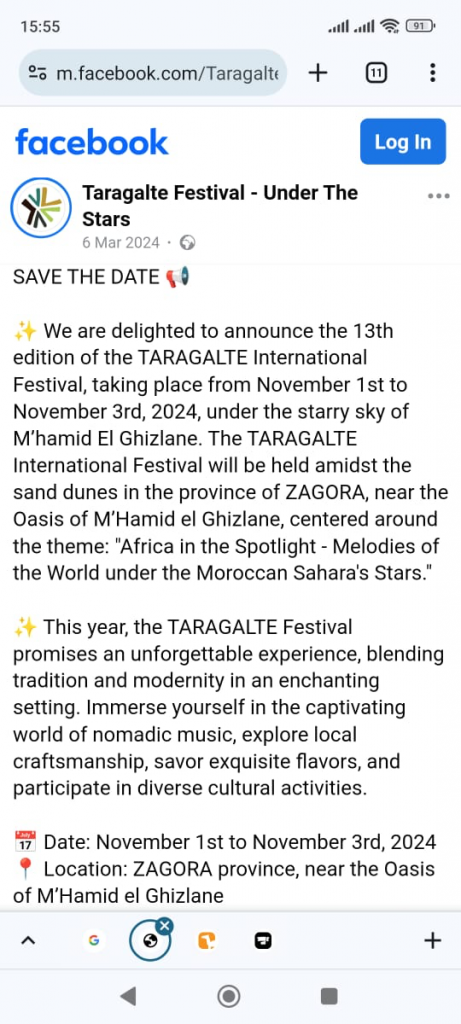
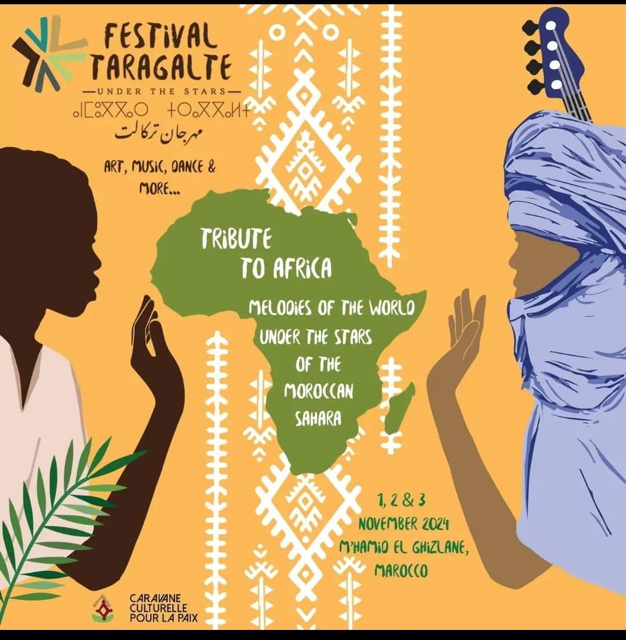
Weather condition in Zagora desert area:
https://weatherspark.com/y/34027/Average-Weather-in-Zagora-Morocco-Year-Round
For your stay in Marrakech the bicycle project Picala:
Picala Bikes: http://pikalabikes.com/
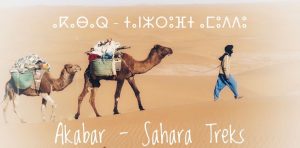
 Deutsch
Deutsch English
English Francais
Francais